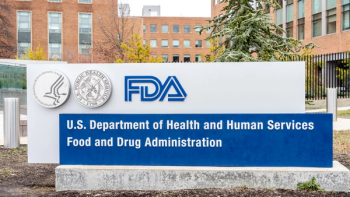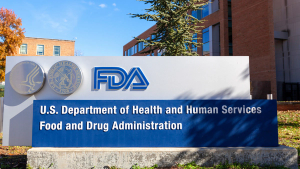
Gilead’s VP of marketing and US HIV prevention discusses the new advertising campaign for Yeztugo.
Mike Hollan is an assistant managing editor for Pharmaceutical Executive and Medical Device and Technology and can be reached at mhollan@mjhlifesciences.com.

Gilead’s VP of marketing and US HIV prevention discusses the new advertising campaign for Yeztugo.

Otsuka America’s president and CEO discusses being the first major pharma company to invest in psychedelics.

In the final part of his conversation with Pharmaceutical Executive, Sandy Donaldson discusses the challenges that pharma faces when marketing direct-to-consumers.

In the second part of his conversation with Pharmaceutical Executive, Sandy Donaldson discusses how pharma marketing teams decide who to target with advertising campaigns.

Starting next January, the list prices for three of the company’s weight-loss medications will reduce.

Sandy Donaldson discusses how pharma companies are developing precise marketing strategies for the modern world.

Immuto’s CEO discusses the benefits of SPCs for target discovery.

The judges ruled against tariffs levied using an emergency law.

The vaccine advisory committee’s meeting has yet to be rescheduled.

Study results showed that patients saw three years of remission while taking the medication.

As the pharma industry continues to experiment with AI implantation, certain areas are showing more promise than others.

Model N’s SVP details the implications of the various deals major pharma companies are striking with the government over drug pricing.

EVERSANA’s president of Patient Services discusses using technology to bring a personalized approach to change care.

From lessons in risk-taking—and building “from zero”—to career-defining pivots, Leonard Mazur, CEO of Citius Pharmaceuticals, reflects on 50-plus years in pharma.

Phesi’s founder and CEO discusses recent trends in clinical trials.

The EY deals leader discusses recent findings and trends from 2025.

TrumpRx is meant to reduce drug costs, but Americans are wondering how it works and what impact it will have.

What did industry experts and insiders tell Pharmaceutical Executive at the start of 2026?

The site offers users coupons for a limited number of medications that can be redeemed at pharmacies and/or manufacturer DTC sites.

The report details expectations regarding follow-up communications and materials.

Angela Schwab, CEO at Trialynx, continues her conversation with Pharmaceutical Executive, this time detailing her experience with debuting her company at the conference.

FDA PreCheck will provide benefits to manufacturing sites that fit criteria focused on benefiting the United States.

Teva’s VP of US innovative medicines marketing discusses the origins of the company’s new campaign featuring comedian Will Forte.

Trialynx CEO Angela Schwab discusses where she saw AI succeeding and failing at the healthcare conference.

In the final part of his conversation with Pharmaceutical Executive, Clay Siegall (president and CEO of Immunome) details the next steps for his upcoming medication.

The preservative, which contains a form of Mercury, has long been the target of anti-vaccine groups, despite studies demonstrating its safety.

EVERSANA president Greg Skalicky continues the conversation, providing details about the commercialization strategy.

Immunome president and CEO Clay Siegall explains why the weeks following JP Morgan are just as important as the conference itself.

Precigen's president and CEO discusses the recent launch of Papzimeos.

Clay Siegall, president and CEO of Immunome, discusses what he saw investors getting excited for at the annual healthcare conference.

Published: April 29th 2024 | Updated: April 30th 2024

Published: July 25th 2025 | Updated: July 30th 2025

Published: January 19th 2026 | Updated: January 22nd 2026

Published: June 25th 2024 | Updated: May 7th 2025

Published: March 11th 2025 | Updated: May 7th 2025

Published: February 17th 2026 | Updated: February 18th 2026